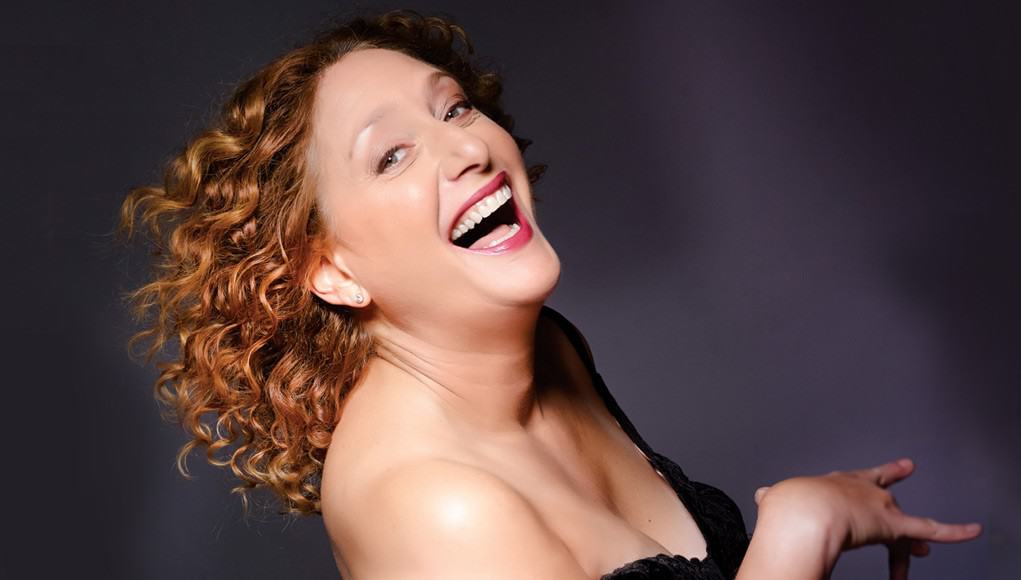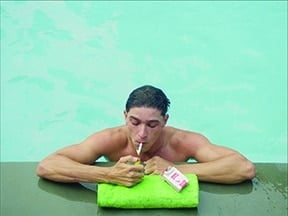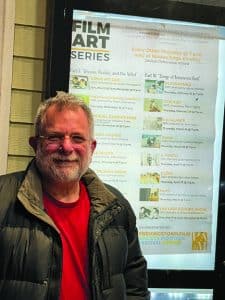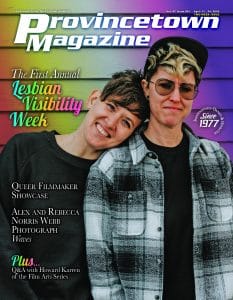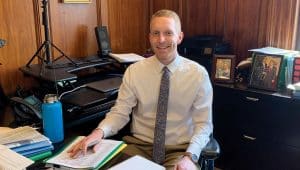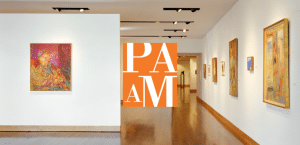Judy Gold Defends The Right To Laugh
by Steve Desroches
Top Image: Photo: Eric Korenman
Judy Gold just dropped the C-Bomb. In plural form. It’s a few days before Rosh Hashanah and she’s on the phone with Zabar’s, the famed specialty food store on Manhattan’s Upper West Side. She’s in Provincetown while her partner is in New York, and trying to organize her family’s celebration of the Jewish New Year during the pandemic is getting on her nerves, thus the description of the multiple folks she’s spoken to on the phone who keep telling her she can’t have more than five items due to a rush for the holiday. She laughs. She’d of course never talk to an employee of Zabar’s like that. But she’s frustrated and she cracks a joke to deflate the situation, and laugh at herself.
Gold knows how to get a laugh. The Emmy-Award-winning comedian has been playing stages large and small all over the country for over 40 years, including here in Provincetown where she began performing in 1992. Gold has a unique vantage point on the pulse of America by knowing what makes them laugh. And in recent years it seems not much—not because Gold’s material isn’t funny, but comedy itself appears under attack. Be it from the left or the right, political correctness or a stringent sense of morality, culturally a joke now can carry the same weight as a hateful law or bigoted religious doctrine. Telling a joke, or the resurfacing of a joke from years ago, can end a career. She points out that the Academy Awards haven’t had a host in two years as there seems no one who can pass the strict litmus test set by the current culture in America. This break in the nation’s funny bone is why she wrote Yes, I Can Say That: When They Come for the Comedians, We Are All in Trouble, a spirited defense of the art form of comedy and its necessary role speaking truth to power, holding a mirror to society, and uniting people by a shared love of laughing at the foibles and vulnerabilities of being human.
“I’ve being doing stand up since I was 19 years old, so for 10 years,” quips Gold. “And I just can’t believe where we are. The awareness of what a joke even is has changed. There’s the build up and the punch line. But instead of the release, jokes now are just triggers; I hate that f**king word. Nothing’s funny now. There’s no full thought about what makes a joke: intent, context, and nuance. When someone commits a murder and goes on trial intent is considered: is it first degree, second degree and so on. You have to give the same consideration to a comedian that you give a f**king murderer. What’s the intent?”
Gold’s full-throated defense of the importance of comedy is receiving rave reviews as well as stirring debate. And her fellow comics, like John Stewart, Margaret Cho, Chris Rock, and Amy Schumer are giving socially distanced high fives. The journey to writing the book began after she appeared on Vice News Tonight on HBO in 2018. Panelists were discussing and debating free speech on college campuses, and in particular the censorship of comedians. Booking groups like the National Association for Campus Activities (of which 1,100 college are members) ask comics to send in audition tapes and then they tell them what material is appropriate, what topics they can’t address, and other restrictions. The censorship of stand-up comics has become so pervasive many skip the college circuit all together. It’s shocking since college students, in particular, were on the forefront of the free speech movement and now there is an establishment set up to protect them from speech that potentially may offend, preventing any larger debate or discussion. After her appearance on the show, publisher Harper Collins offered her a chance to explore the issue further, and she wrote Yes, I Can Say That in Provincetown, utilizing space at the Provincetown Commons as her writing studio.
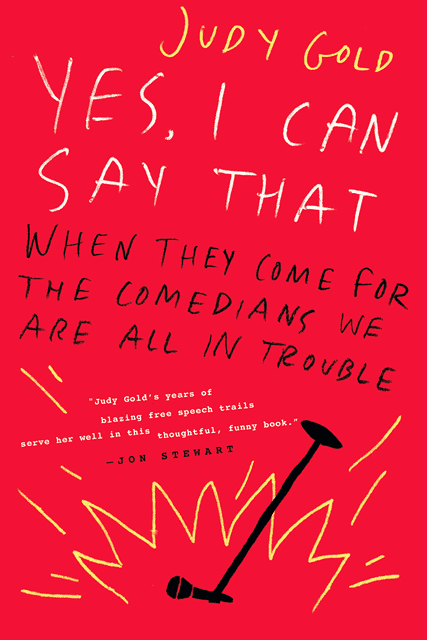
Over the course of her career, and in writing the book, Gold’s study of the history of comedy and censorship shows we’ve been in places like this before. George Carlin and Lenny Bruce were both repeatedly arrested for telling jokes. Gilbert Gottfried lost an endorsement deal with the insurance company Aflac over jokes he made about the 2011 Japanese earthquake and tsunami. Gay and lesbian comedians weren’t allowed for years to make jokes about their sexuality as the subject was too taboo. But it is perhaps her appearance in the 2016 documentary The Last Laugh that goes the deepest into what is and isn’t funny and how comedy can be an important tool in fighting tyrants and reclaiming ones sense of power. The film, directed by Ferne Pearlstein, explores Holocaust jokes, featuring comics like Mel Brooks, Sarah Silverman, and Carl Reiner, as well as Holocaust survivors sharing stories of cracking jokes while in concentration camps and using comedy to help heal after surviving an atrocity. Consider that in 1947 while Mel Brooks was working the Borscht Belt, Jewish resorts in the Catskill Mountains, part of his act was an impersonation of Hitler while some in the audience had tattoos on their arms from concentration camps they had been liberated from just two years earlier. Since then he’s always stated that as a comedian, a Jew, and a World War II veteran, the most powerful tool he had against Hitler was to make him a joke.
“Great comedy lives on the edge of what’s acceptable,” says Gold. “And we don’t know where that edge is until we find it.”
Comedy is also about telling the truth, and that can be what people find most offensive. In these times we are living in it seems that the power to which comedians are speaking truth is largely given a pass, while the comics take the heat. In her book Gold quotes humorist Will Rogers who said in 1932, “Everything is changing. Now people are taking comedians seriously and the politicians as a joke, when it used to be vice versa.” And that’s the rub today.
Michelle Wolf’s 2018 performance at the White House Correspondent’s Dinner was considered so outrageous by many of the rich and powerful attendees that comedians are no longer part of the event for the foreseeable future. Yet, in 2016 in a debate in Detroit during the Republican Presidential Primary, Donald Trump defended the size of his penis after Florida Senator Marco Rubio threw shade over the size of Trump’s hands. Wolf took a lot of flack for her jokes, Trump was elected President by the Electoral College, though losing the popular vote. It is true that if you’re not outraged, you’re not paying attention. But it’s also important to know when it’s time to lighten up.
When it comes to Provincetown, Gold says this phenomenon isn’t as big as an issue in terms of outrage over jokes. Provincetown is an important spot for performers of all kinds, but especially for LGBT entertainers. As the oldest art colony in America, Provincetown can’t function fully in that capacity without free speech. And of course while you have the right to free speech, you don’t have the right to be popular. If someone doesn’t like what you’re doing, criticism is fair, and not going to see that show anymore is also an effective option. But why would you want a comedian to be banned after one joke? That’s like if you went to see an art exhibition and didn’t like a painting and asked that all the work come down off the gallery walls, says Gold.
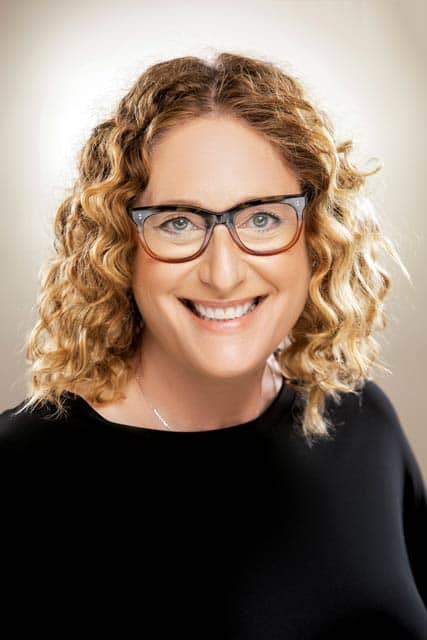
After wrapping up a summer of shows at the Crown and Anchor, Gold says things went well—no hecklers and no sign of keyboard warriors pounding away on social media or any cries for her to be canceled. But there was one incident.
“I went to the Stop and Shop and I noticed on one of my posters someone wrote ‘horrible show’ with a Sharpie,” says Gold. “I mentioned it before a show the next night and was told that four Trump supporters were offended and wanted their money back. I laughed thinking of them going all the way over to the Stop and Shop, buying a Sharpie to write that. I mean, I don’t think it was them. But who the f**k asks for their money back because they were offended at a comedy show?”
Judy Gold’s book Yes, I Can Say That: When They Come for the Comedians, We Are All in Trouble (2020, Dey Street Books)is available in hardcover wherever books are sold. Please support your independent bookseller.

